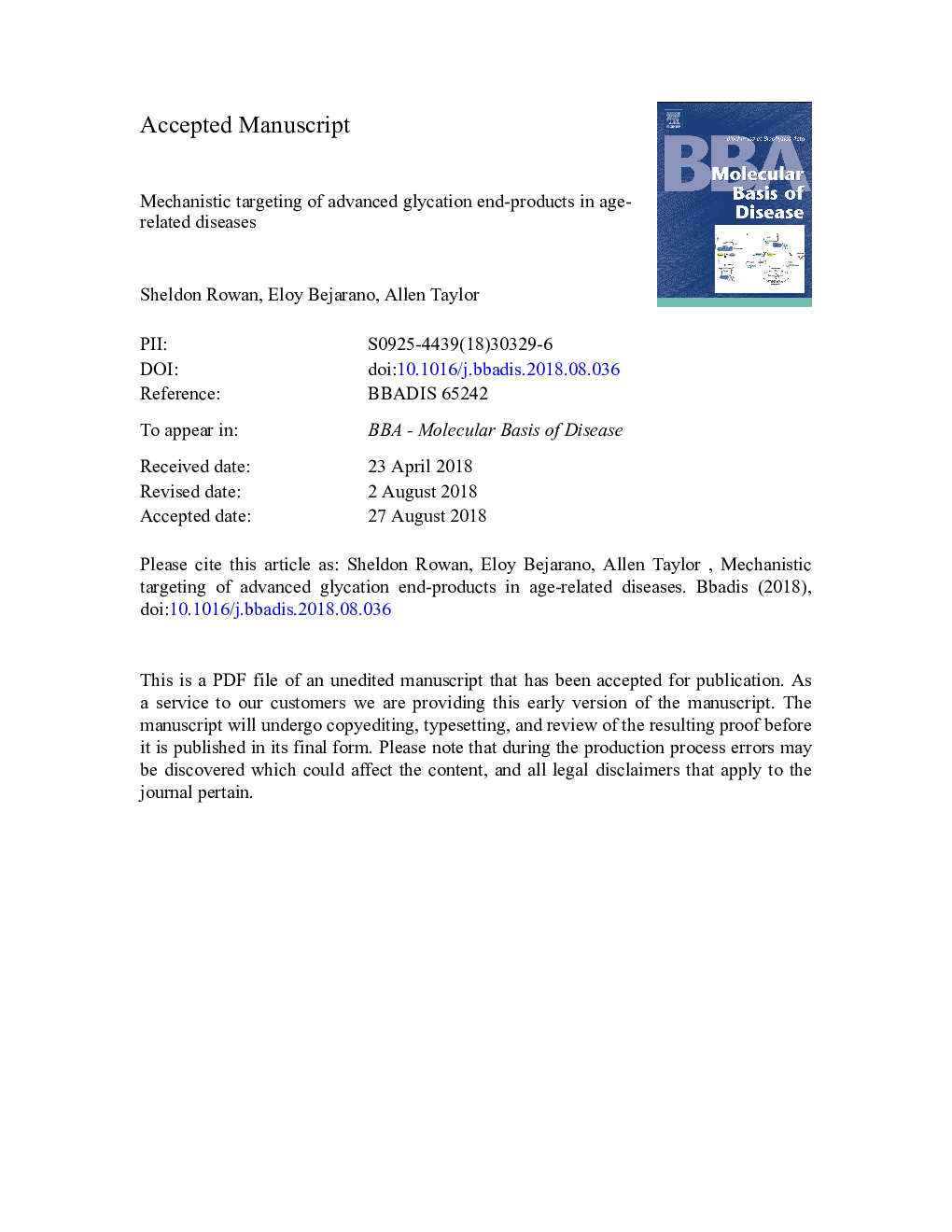| Article ID | Journal | Published Year | Pages | File Type |
|---|---|---|---|---|
| 11026211 | Biochimica et Biophysica Acta (BBA) - Molecular Basis of Disease | 2018 | 36 Pages |
Abstract
Glycative stress, caused by the accumulation of cytotoxic and irreversibly-formed sugar-derived advanced glycation end-products (AGEs), contributes to morbidity associated with aging, age-related diseases, and metabolic diseases. In this review, we summarize pathways leading to formation of AGEs, largely from sugars and glycolytic intermediates, and discuss detoxification of AGE precursors, including the glyoxalase system and DJ-1/Park7 deglycase. Disease pathogenesis downstream of AGE accumulation can be cell autonomous due to aggregation of glycated proteins and impaired protein function, which occurs in ocular cataracts. Extracellular AGEs also activate RAGE signaling, leading to oxidative stress, inflammation, and leukostasis in diabetic complications such as diabetic retinopathy. Pharmaceutical agents have been tested in animal models and clinically to diminish glycative burden. We summarize existing strategies and point out several new directions to diminish glycative stress including: plant-derived polyphenols as AGE inhibitors and glyoxalase inducers; improved dietary patterns, particularly Mediterranean and low glycemic diets; and enhancing proteolytic capacities of the ubiquitin-proteasome and autophagy pathways that are involved in cellular clearing of AGEs.
Keywords
Related Topics
Life Sciences
Biochemistry, Genetics and Molecular Biology
Ageing
Authors
Sheldon Rowan, Eloy Bejarano, Allen Taylor,
